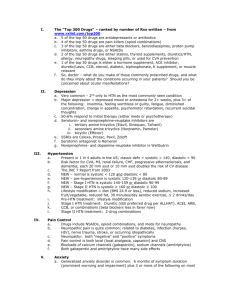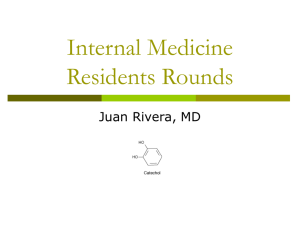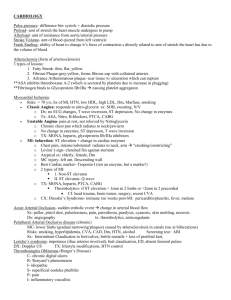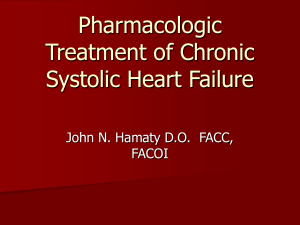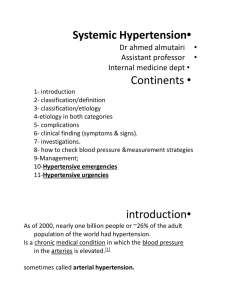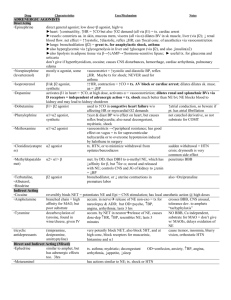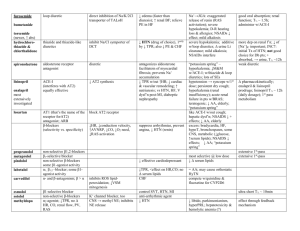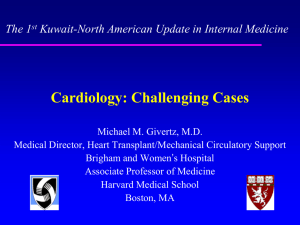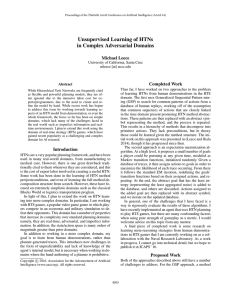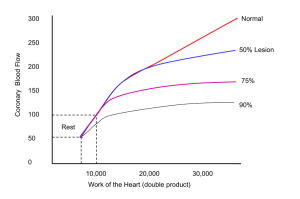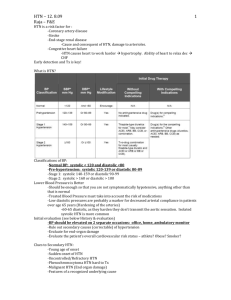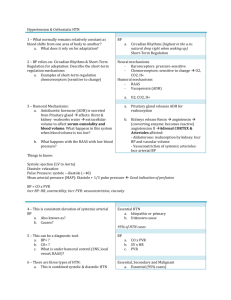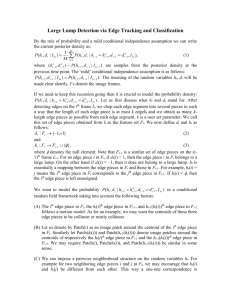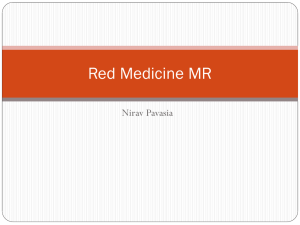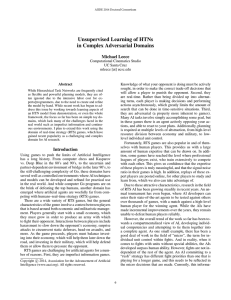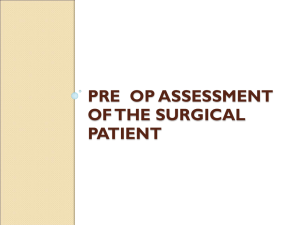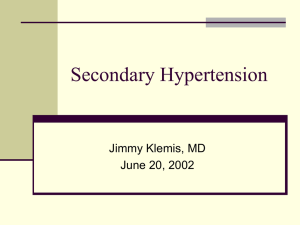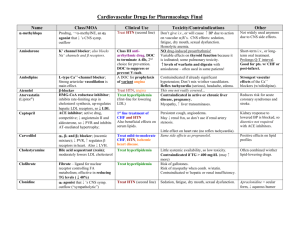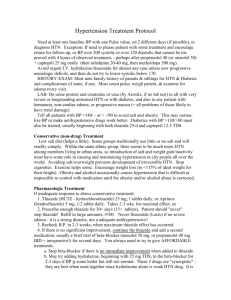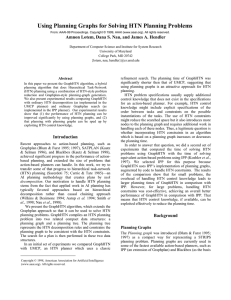WHAT IS HIGH BLOOD PRESSURE (HTN)
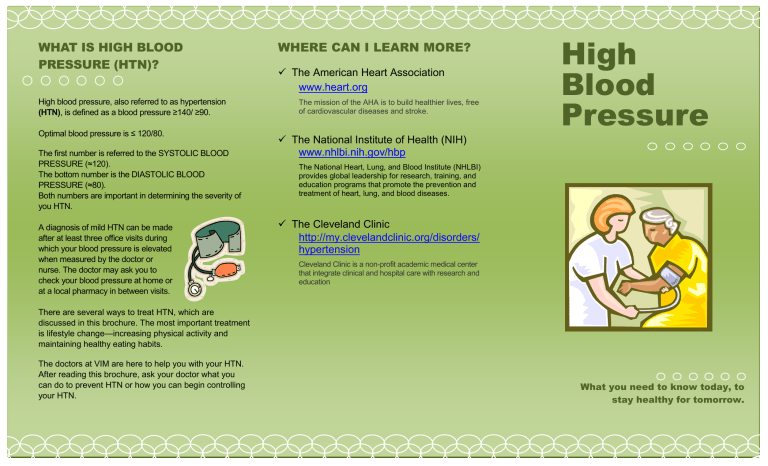
WHAT IS HIGH BLOOD
PRESSURE (HTN)?
High blood pressure, also referred to as hypertension
(HTN) , is defined as a blood pressure ≥140/ ≥90.
Optimal blood pressure is ≤ 120/80.
The first number is referred to the SYSTOLIC BLOOD
PRESSURE (≈120).
The bottom number is the DIASTOLIC BLOOD
PRESSURE (≈80).
Both numbers are important in determining the severity of you HTN.
A diagnosis of mild HTN can be made after at least three office visits during which your blood pressure is elevated when measured by the doctor or nurse. The doctor may ask you to check your blood pressure at home or at a local pharmacy in between visits.
There are several ways to treat HTN, which are discussed in this brochure. The most important treatment is lifestyle change —increasing physical activity and maintaining healthy eating habits.
The doctors at VIM are here to help you with your HTN.
After reading this brochure, ask your doctor what you can do to prevent HTN or how you can begin controlling your HTN.
WHERE CAN I LEARN MORE?
The American Heart Association www.heart.org
The mission of the AHA is to build healthier lives, free of cardiovascular diseases and stroke.
The National Institute of Health (NIH) www.nhlbi.nih.gov/hbp
The National Heart, Lung, and Blood Institute (NHLBI) provides global leadership for research, training, and education programs that promote the prevention and treatment of heart, lung, and blood diseases.
The Cleveland Clinic http://my.clevelandclinic.org/disorders/ hypertension
Cleveland Clinic is a non-profit academic medical center that integrate clinical and hospital care with research and education
High
Blood
Pressure
Date of publication
What you need to know today, to stay healthy for tomorrow.
what causes HTN?
Primary or essential HTN can be caused by several factors. After discussing your medical history, your doctor will rule out more serious causes of high blood pressure with a physical exam and some simple blood tests.
Some uncontrollable factors that may predispose a person to having high blood pressure (HTN) include:
Ethnicity . HTN is more common and often more severe in Blacks.
Family history of HTN.
Be sure to tell the doctor if either of your parents had high blood pressure.
Other, more common, causes of HTN that can be controlled include:
High salt (sodium) consumption
Alcohol consumption
Weight gain and/or obesity
Physical inactivity
High cholesterol levels
HOW DOES HTN AFFECT MY
HEALTH?
High blood pressure causes strain on the heart and arteries and can eventually damage other organs, if left untreated. Untreated HTN can cause serious health complications, including:
Premature cardiovascular (heart and lung) disease
Abnormal heart rhythms, heart failure, and heart attacks
Strokes and bleeds in the brain
Kidney disease
Death
WHAT CAN I DO TO CONTROL
MY HTN?
Treatment often begins at home; increasing physical activity levels, losing weight, and improving eating habits can sometimes be enough to reduce or resolve blood pressue. When diet and exercise are not enough, your doctor may prescribe medication.
EXERCISE & DIET
Aerobic exercise can lower blood pressure by 5 to 15 points. This type of exercise includes activities such as: walking, jogging, or swimming —any activity that increases heart rate. Most doctors recommend about 30 minutes of aerobic exercise, 3 to 5 times a week.
Exercise also helps to reduce cholesterol levels and promote weight loss , important factors in HTN.
Diet is another important factor. Reducing salt/sodium intake and alcohol consumption, eating more fruits, vegetables , and low fat dairy products, and reducing the amount of saturated and total fat in your diet will help to reduce high blood pressure.
MEDICATION
Medication may be necessary if diet and exercise are not sufficient in reducing blood pressure (blood pressure remains ≥140/90). Your doctor will select the right medication for you based on your age, gender, race, and your general health status.
